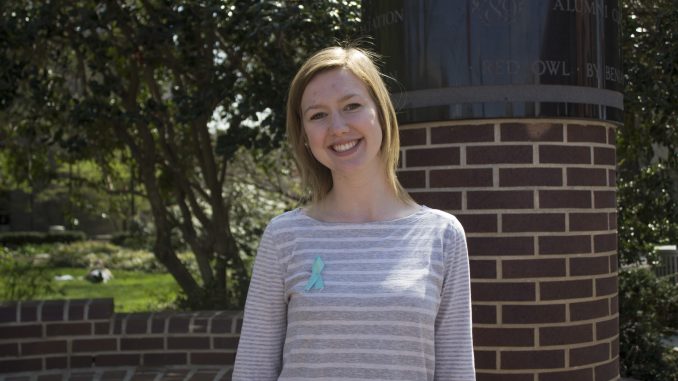
Parliament passed a binding resolution that would encourage the university to shorten the mandatory waiting time to hear sexual assault cases on Monday.
Olivia Farkas, an at-large representative, introduced the legislation two weeks ago, but it was tabled because other representatives didn’t think the language was clear enough. The revised resolution calls upon Dean of Students Stephanie Ives to “hire sufficient more administrators in the Office of Student Conduct to allow for this resolution to be fully realized.”
The United States Department of Education set a guideline that recommends universities hold a hearing no more than 60 days after receiving a sexual assault complaint. During that time, universities should have conducted a complete investigation of the incident.
“I am beyond happy that this resolution has been passed today,” Farkas said after the resolution passed. “I hope that through this bill, survivors can begin to get the justice they deserve and rape culture can begin to end.”
Based on testimony from students she has spoken to, Farkas said it takes Temple four to six months to hear a case. Parliament’s resolution would make the 60-day guideline a mandatory practice for Temple.
Temple’s current policy, titled “Preventing and Addressing Sexual Assault, Domestic Violence, Dating Violence and Stalking,” was last changed in 2015 when the Presidential Committee on Campus Sexual Misconduct and does not have a standard amount of time the university will take when processing a complaint.
“I’m not trying to change an entire policy,” Farkas told The Temple News last week. “The 60-days rule … isn’t currently being done. That’s what I’m trying to reform.”
According to a Title IX Questions and Answers document published in 2014 by the DOE, the 60-day guideline for the resolution of Title IX violations “is based on [the Office of Civil Rights’] experience in typical cases.”
Andrea Seiss, Temple’s Title IX coordinator, said the DOE gives extensions during investigations as long as the university is documenting why extensions have been requested. Seiss is responsible for ensuring the university complies with Title IX’s stipulations and requirements, which prohibit federally funded education programs from sexual discrimination. She also leads investigations of Title IX complaints.
“I think that’s because [the DOE] understand there may be reasons why the case would be extended beyond 60 days,” Seiss said.
Cases can take longer to get to a hearing because of the process for interviewing the complainant, the accused and the witnesses, she added.
“The biggest issue is definitely the availability of all the people involved and making sure you get all the information, because you can’t re-hear a case,” Seiss said. “And besides just trying to get that information, the university calendar has to be considered. When the students are not here but the university is open, we can still move forward with conduct cases, but if it’s summer break and one or more say they can’t come back for the hearing, we could have to postpone.”
Farkas said she was “nervous” about presenting the resolution because she was concerned other representatives wouldn’t find it feasible. She said Parliament’s Committee of Student Life spent “a long time coming up with ideas” for the resolution.
“It’s very hard to change an entire culture and an entire process within the administration,” Farkas said. “We wanted to think small in this case, because we wanted to make sure that we weren’t over-complicating it.”
After the resolution was tabled on April 4, Tyler School of Art representative Jacob Kurtz suggested circulating a petition to gain support for the legislation and increase student awareness.
Kurts and several other representatives shared the petition on social media. The petition has 210 signatures. Several are from students at the University of Pittsburgh, Farkas said.
“That was really cool that they had even heard about it and wanted to support this,” she said.
Amanda Lien can be reached at amanda.lien@temple.edu or on Twitter @amandajlien.


Be the first to comment